The Premier League celebrates its 25th anniversary this year and since its creation it has seen a number of clubs come and go.
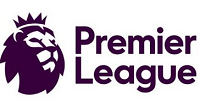
In addition to the names of league members changing significantly over the years, so too have the stadiums that these clubs occupy. Some have boosted capacity by building new stands at their existing homes whereas others have upped sticks and moved to brand spanking new stadium. But regardless of their age or location who actually owns the freehold to the Premier League’s grounds?
On the eve of the new football season, Property Week, in partnership with data provider Datscha, decided to find out.
Cross referencing the freehold information held by Datscha with company ownership data from Companies House and other data sources, we have compiled a list of the ultimate owners of these grounds. The names of these owners may not as obvious as you would think….
ARSENAL FC - EMIRATES STADIUM
Queensland Road, London
Freeholder: Arsenal (Emirates Stadium) Ltd
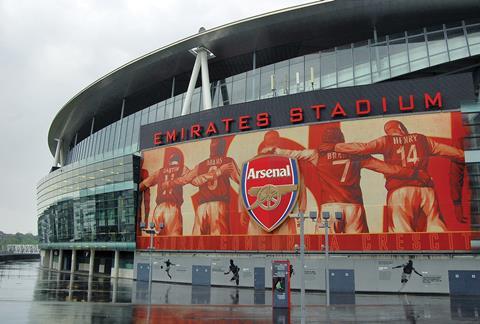
The third most valuable football club in England moved to its current stadium in 2006, at a site which was previously occupied by the Ashburton Grove waste recycling plant.
in 2006.Prior to the switch the club’s home for 93 years was Highbury, which in 2010 was converted into a block of 711 flats - the ‘Gunners’ retained the freehold of the site.
The freehold to the Emirates, which is the third largest stadium in the country, is registered to Arsenal (Emirates Stadium) Limited. The ultimate controlling party is KSE UK Inc, a vehicle of US entrepreneur Enos Stanley ‘Stan’ Kroenke, the club owner.
AFC BOURNEMOUTH - DEAN COURT/VITALITY STADIUM
King’s Park, Bournemouth
Freeholder: Bournemouth Stadium LLP
Dean Court is the smallest stadium in the Premier League, boasting just 11,464 seats - Old Trafford, the league’s largest stadium, is almost seven times bigger.
It originally opened in 1910 and was completely rebuilt in 2001. In 2005, the club sold the freehold of the stadium to property company Structadene in a sale-and-leaseback deal for £3.5m.
The club currently pays around £300,000 a year in rent. Structadene is owned by property tycoon David Pearl, who is also a vice-president of Tottenham.
The ‘Cherries’ recently expressed their intention to find a new home after Pearl rejected the club’s offer to buy back the freehold. Pearl, who said his company is “very happy with the return we are getting on it”, has “wished them luck”.
BRIGHTON & HOVE ALBION - FALMER STADIUM/AMERICAN EXPRESS COMMUNITY STADIUM
Village Way, Brighton
Freeholder: University of Brighton/Brighton & Hove City Council
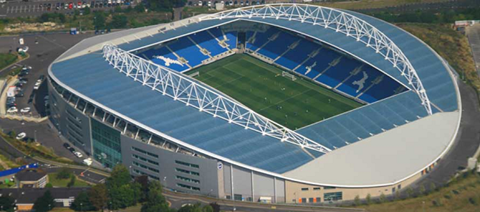
The 22,374 capacity Falmer stadium, which was built in 2008, will host a Premier League match for the first time this year. It signals a happy ending for a club that has endured a lot of stadium-related turmoil over the last few decades.
In 1997, Brighton were evicted from the Goldstone Ground, which had been their home for almost a century, after the club owners sold it to property developers to pay off debts (it is now a shopping centre).
After playing at a number of different grounds for 12 years, the club moved into its new home in 2011. The freehold is split between the University of Brighton and the Brighton & Hove City Council. The leasehold belongs to the club through its company Community Stadium Limited.
BURNLEY FC - TURF MOOR
Harry Potts Way, Burnley
Freeholder: Longside Properties Limited
Burnley has played at Turf Moor since 1883, which makes it the longest continuously used ground of any Premier League’s team.
Since 2011 the joint-chairmen of the club are Mike Garlick and John Banaszkiewicz, who also own the freehold of the stadium via Longside Properties Limited. Garlick is the founder and chairman of recruitment service Michael Bailey Associates, while Banaszkiewicz founded freight and commodity company Freight Investor Services. Burnley is one of only five British-owned clubs in the Premium League.
CHELSEA FC - STAMFORD BRIDGE
Fulham Road, London
Freeholder: Chelsea Pitch Owners
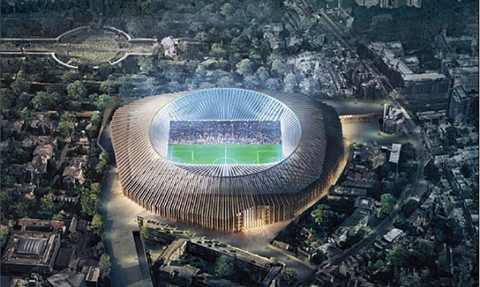
Constructed in 1877, Stamford Bridge has been used by Chelsea since 1905. The freeholder, Chelsea Pitch Owners, is a non-profit organisation, which also owns the naming rights of the club.
The organisation bought the freehold in 1997 after Chelsea FC almost lost the stadium due to off the pitch financial issues. Ownership of the stadium is structured so that no property developer could ever buy Stamford Bridge.
The Chelsea FC name is licensed to the club on condition that it plays their home matches at the stadium. This means that if Chelsea moves out, it would have to change its name. Chelsea owner, Roman Abramovich, tried (and failed) to take possession of the land in 2011. Abramovich does, however, owns the freehold of the two onsite 281-bed four-star Millennium and Copthorne hotels.
CRYSTAL PALACE - SELHURST PARK
Holmesdale Road, London
Freeholder: CPFC Selhurst Park Limited
The stadium, which was designed by Archibald Leitch, opened its doors for the first time in 1924.
The freehold of the land the stadium is built on belongs to the club through two companies called CPFC Selhurst Park Limited and Palace Holdco - Palace Holdco’s main shareholder is club owner Steve Parish. Other shareholders include club co-owner and co-chairman Stephen Browett; American billionaire and private equity investor Josh Harris; and businessman and Vote Leave donor Jeremy Hosking.
EVERTON - GOODISON PARK
Goodison Road, Walton, Liverpool
Freeholder: Goodison Park Stadium Limited

Goodison Park is England’s first purpose-built football ground and one of the oldest stadiums in the country. It has been home to Everton since 1892. The club also owns the freehold, through the Goodison Park Stadium Limited company. Everton’s new owner, Farhad Moshiri, who bought 49% of the club’s shares for £87.5m in 2016, recently unveiled plans to move to a new stadium at Bramley Moore after a two-decade search.
HUDDERSFIELD TOWN - KIRKLEES STADIUM/JOHN SMITH’S STADIUM
Stadium Way, Huddersfield
Freeholder: Kirklees Stadium Development Limited
Kirklees Stadium has been home to both the football club and rugby team Huddersfield Giants since 1994. The club’s victory over Reading in the Championship play-off final propelled it into the top flight for the first time in its history.
The freehold of the stadium, which is registered to Kirklees Stadium Development Limited, is split between the Council of the Borough of Kirklees (40%), Huddersfield Town (40%) and rugby team owner Huddersfield Sporting Pride (20%).
LEICESTER CITY - KING POWER STADIUM/LEICESTER CITY STADIUM
Filbert Way, Leicester
Freeholder: K-Power Holdings Co Limited (Hong Kong)
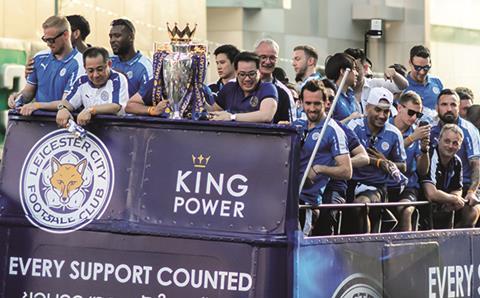
The stadium, which cost around £37m to build, was completed in 2002, the same year Leicester City went into administration after racking up more than £30m of debts. The following year the Foxes were rescued by a consortium led by former striker Gary Lineker.
Thai billionaire Vichai Srivaddhanaprabha, who is the founder and chairman of duty free giant King Power, bought the club in 2010 for £39m (after it won the Premier League, last year, it was valued at £436m). In 2013, Srivaddhanaprabha also bought the freehold of the ground through his Hong Kong vehicle K-Power Holdings and renamed the stadium after his company.
LIVERPOOL FC - ANFIELD
Anfield Road, Liverpool
Freeholder: The Liverpool Football Club and Athletic Grounds Limited
Boasting a capacity of 54,074, Anfield is the sixth biggest stadium in England and has been home to Liverpool since the club’s formation in 1892.
The football club, as well as the freehold of the stadium, was acquired by American sports investment company Fenway Sports Group in 2010. Fenway’s owner, John W. Henry, also owns the baseball team Boston Red Socks and The Boston Globe newspaper.
MANCHESTER CITY - ETIHAD STADIUM/CITY OF MANCHESTER STADIUM
Ashton New Road, Manchester
Freeholder: Manchester City Council
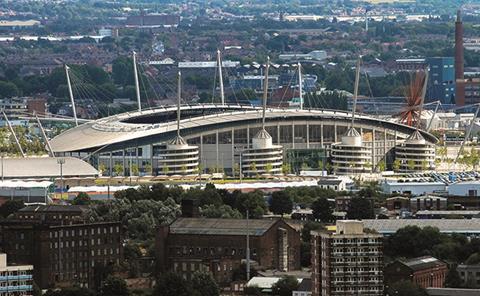
The £112m arena, which was built by developer Laing Construction for the 2002 Commonwealth Games, was converted into a football stadium in 2002 thanks to a joint venture between Manchester City Council and the football club.
The expansion, which expanded the ground’s capacity from 38,000 to 48,000 seats, cost £42m - £22m of this was paid by the council and £20m by Manchester City FC. The freehold of the stadium remains with the council, which leases it to the club.
A recent Freedom Of Information request showed that the club paid £4.43m of rent for the season 2014-2015.
MANCHESTER UNITED - OLD TRAFFORD
Sir Matt Busby Way, Manchester
Freeholder: Manchester United Limited
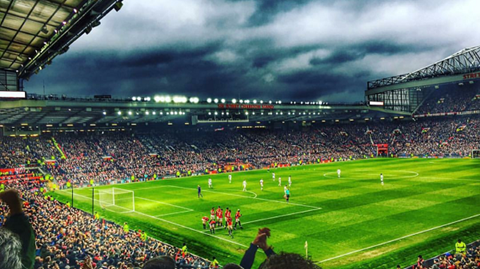
Old Trafford is the largest stadium in the UK, with a capacity of 74,000. Dubbed “the theatre of dreams” by its fans, the stadium has been home to the Red Devils for more than a century.
The freehold of the stadium belongs to the club. The ultimate ownership of the club is registered in George Town, the Cayman Islands. Manchester United PLC was moved offshore by its owners, the Glazer family, in 2012.
They took control of the club in 2005 for a sum believed to be in the region of £800m.
NEWCASTLE UNITED - ST JAMES’ PARK
Barrack Road, Newcastle upon Tyne
Freeholder: The Council of the City of Newcastle upon Tyne
After Newcastle won promotion back to the Premier League at the end of last season the ‘Toon Army’ can’t wait to head back to St James’ Park for the start of the 2017-18 season.
The 52,405-seater stadium has been the home of Newcastle United since 1892 and the club was acquired by Sports Direct founder Mike Ashley for £134m in 2007. The freehold of the stadium site belongs to Newcastle City Council.
SOUTHAMPTON
ST MARY’S STADIUM
Britannia Road, Southampton
Freeholder: St. Mary’s Football Group Limited
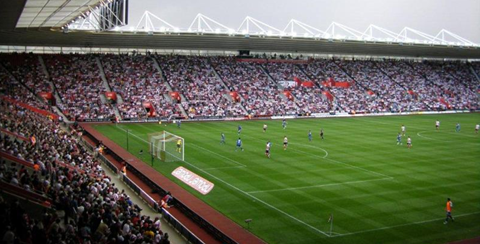
St. Mary’s was developed by Southampton council on a former gas works site in the city centre, just a short walk away from St Mary’s Church, where the roots of the club’s history can be traced - the St Mary’s Church Young Men’s Association was founded there in 1885.
The freehold to the stadium, which cost £32m to build and was officially opened in 2001, belongs to Southampton owner Katharina Liebherr. She resigned as a director of the club last week and there are rumours that Chinese company Lander Holdings has offered £210m to buy Southampton.
STOKE CITY - BET365 STADIUM
Stanley Matthews Way, Stoke-on-Trent
Freeholder: Stoke City Property Ltd
The Britannia stadium was built in 1997 at a cost of circa £15m by the Britannia building society. The freehold belongs to club owner Peter Coates, who is the founder and chairman of the bet365 group, one the world’s largest online gambling companies.
The 27,902-seater arena changed its name to ‘bet365 stadium’ last year, following the signing of a £30m six-year naming rights sponsorship with the club’s parent company.
SWANSEA CITY AFC - LIBERTY STADIUM
Normandy Road, Swansea
Freeholder: The Council of the city and county of Swansea
The Liberty Stadium replaced the Vetch Field as Swansea City’s home in 2005. Swansea Council, which still owns the freehold, decided to demolish the Morfa athletics stadium to make way for the club’s new £27m home in addition to a 265,000 sq ft shopping park.
Swansea City and rugby team Ospreys have a peppercorn rent agreement with the council.
TOTTENHAM HOTSPUR FC - WHITE HART LANE STADIUM
748 High Road, Tottenham, London
Freeholder: Meldene Limited
In 2008, Spurs’ owners Joe Lewis and Daniel Levy unveiled ambitious plans for a new stadium to be built adjacent to the 118-year-old White Hart Lane.
It took them almost ten years to bring those plans to fruition, but the new massive 60,000-seat and £800m stadium is currently under construction, with Spurs set to play their home games at Wembley Stadium this season.
The freehold owner of the development site is Meldene, a company which is wholly owned by the club. The parent company, ENIC group, is based in the Bahamas.
WATFORD - VICARAGE ROAD
Vicarage Road, Watford
Freeholder: The Watford Association Football Club Limited
‘The Vic’, as Vicarage Road stadium is known amongst Watford fans, has changed hands three times over the last 15 years.
The club bought the freehold from Benskins brewery in 2002, but was forced to sell it to property developers in a sale-and-lease-back just months later. In 2004, Watford eventually managed to buy back the stadium after a successful ‘Let’s buy back the Vic’ campaign, which was spearheaded by then-owner Elton John.
WEST BROMWICH ALBION - THE HAWTHORNS
Halfords Lane, West Bromwich
Freeholder: West Bromwich Albion Group Limited
The Hawthorns opened its doors on Monday 3 September 1900, just four months after the foundation stone was laid. The football club has owned the freehold to the site since 1913.
West Bromwich Albion’s main shareholder is Chinese businessman Guochuan Lai, who bought a stake in the club last year.
WEST HAM UNITED - LONDON STADIUM
Marshgate Lane, London
Freeholder: London Legacy Development Corporation
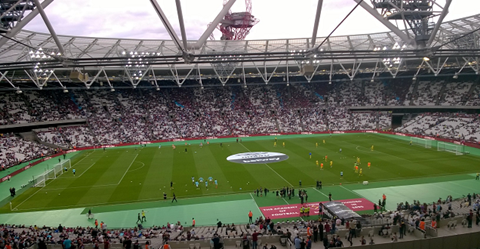
The stadium was built to host the 2012 Olympic Games in London. The freehold belongs to the London Legacy Development Corporation, an entity which is also in charge of the Olympic Park.
West Ham moved into the stadium at the start of last season following a leasehold ownership battle that raged for nearly nine years.
























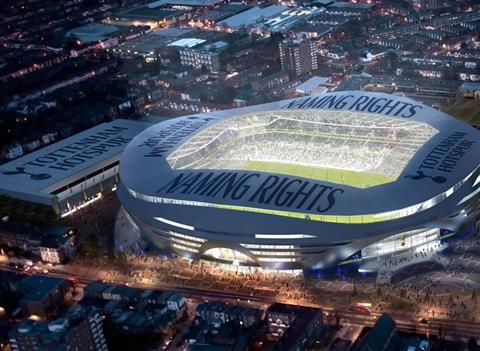
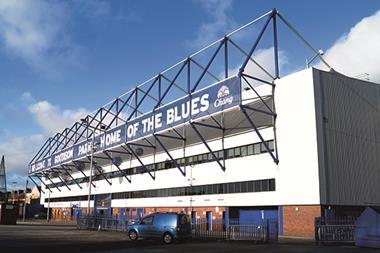
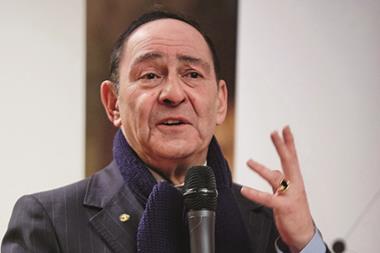
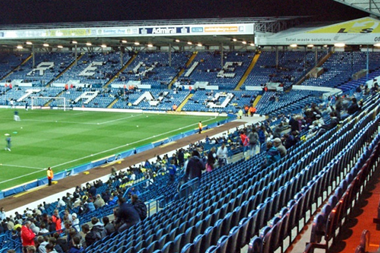
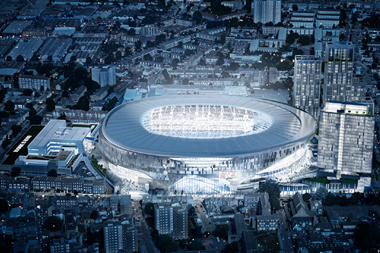
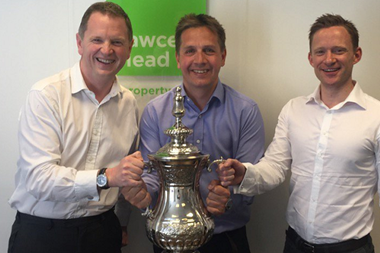
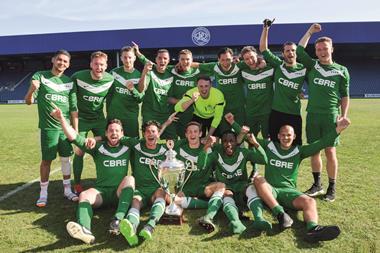
No comments yet